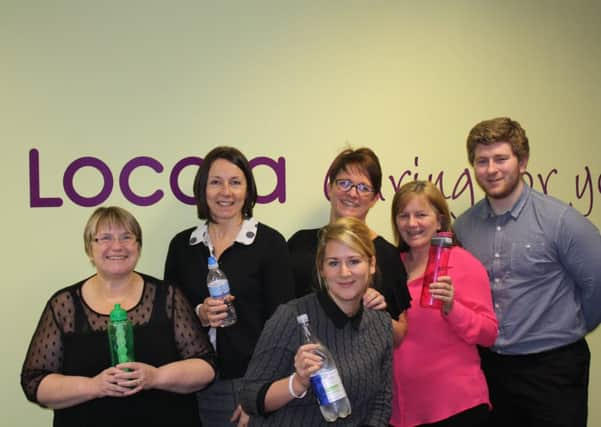January is a dry one for Locala!


Colleagues at Locala, which runs community health services in Kirklees, have pledged to go without booze for 31 days as part of the national Dry January campaign, and have celebrated passing the halfway point.
Many have already noticed the benefits, which include weight-loss, saving money and improved sleep. Some are also fundraising for charities including Cancer Research and Leukaemia Research to help them stick to the challenge.
Advertisement
Hide AdAdvertisement
Hide AdJo Marshall, administration co-ordinator at Locala, has raised almost £150 so far. She said: “I wanted to do it to prove to everyone that I could. I was hoping to make a lifestyle change and help my weightloss efforts too. The main benefit I’ve noticed is that I’m sleeping much better – I haven’t missed it at all.
“I will still drink once it’s over but will cut down and I have now realised I can socialise without needing a drink.”
Wendy Edmondson, lead alcohol nurse at Locala, said: “Nationally, we’re seeing an increase in the number of deaths from alcohol-related liver disease in the under-40s, so this is a growing problem.
“Research has also linked alcohol to other serious conditions including throat, mouth and breast cancer, as well as heart disease, hypertension and depression.
Advertisement
Hide AdAdvertisement
Hide Ad“Taking a break not only encourages you to change your drinking habits but reduces the risk of these conditions. It also lowers your calorie intake, makes you feel more alert and energised without a hangover, and will save you money.
“Being involved in Dry January helps give people a real reason to assert themselves to be able to say no to a drink. Drinking isn’t really a message about abstinence but people should drink sensibly and need to be aware of their limits.”
Alcohol consumption guidelines recommend women should drink no more than two to three units of alcohol a day, and men no more than three to four units a day.